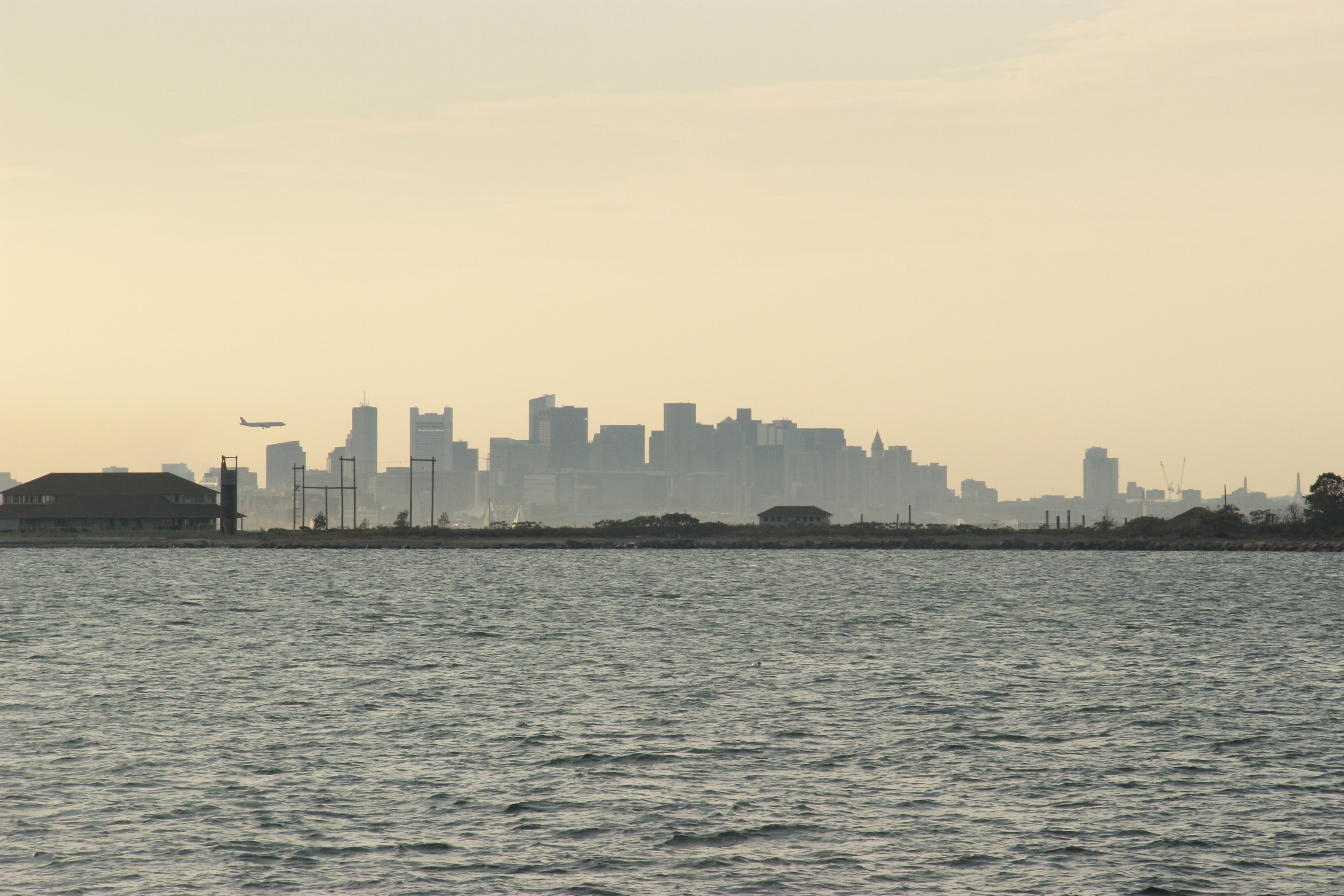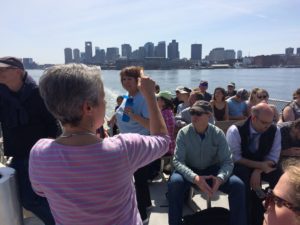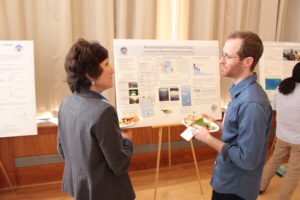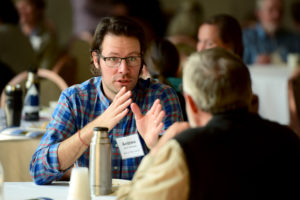The Boston Harbor & Islands Science Symposium, held April 11-12, brought together 200 scientists, citizens, resource managers, decision-makers, and students to share their expertise and experiences studying Boston Harbor. The Symposium featured diverse formats in which attendees could learn about what is being studied, including field trips, panels, keynote talks, a networking breakfast, concurrent sessions, lightning talks, and posters. Like many professionals in attendance, Dr. Lauren Nolfo-Clements (Chair, Suffolk University Biology Department) “came here to network because I do research on the islands but don’t often get to interact with other researchers in this way.”
A stunningly beautiful opening day buoyed those who took part in field trips that 1) introduced attendees to water quality monitoring in the Charles River, 2) research at the New England Aquarium’s Anderson Cabot Center for Ocean Life, 3) water views of flood-resilient designs along Boston’s waterfront, 4) and a scientist-narrated boat tour of research occurring in and around the harbor islands. The day of outdoor learning concluded with a citizen science-themed Science Café hosted by UMass Boston.
Kicking off the second day were several presenters who “set the stage”, outlining key elements of Boston Harbor’s past, present, and imminent future. Next, keynote speaker Anne Giblin of the Marine Biological Laboratory wove into the discussion the critical role science plays in protecting and managing the complex urban estuary. Subsequent sessions focused on topics ranging from monitoring marine invasive species to salt marsh migration; from modeling sea level rise to breeding bird habitats; and from cultural resources to eelgrass restoration.
The evocative presentations sparked conversation and comment by many in attendance including Marian Miller from MassAudubon’s Habitat Education Center and Wildlife Sanctuary, who remarked, “I’m an environmental educator interested in what others are saying about the harbor and climate change.” Jessica Fee, a Peddocks Island cottager who spends a lot of time on the island and homeschools her daughter, remarked “it’s interesting to compare her observations with more in-depth research.”
The Symposium concluded with a keynote presentation from Rich Batiuk, the Associate Director for Science, Analysis, and Implementation at the Chesapeake Bay Program, who reflected on his experiences integrating science into management decisions across a six-state jurisdiction. Rich then joined a panel featuring decision-makers representing state and local governments, as well as a non-profit and academia.
With heads full of the latest research and science, and with eyes on the future, attendees made connections and found opportunities to engage in science activities to aid in the informed management of the Boston Harbor and Islands. Leaving inspired, Bill Kiley from the Boston Water & Sewer Commission dreamed, “I want to see these fantastic ideas presented here [become] reality, it’s our responsibility when you think about it.”
The organizers would like to thank event sponsors, the Massachusetts Bays National Estuary Program, National Parks of Boston, UMass Boston, Boston Harbor Now, and Northeastern University. An album of photos from the event can be viewed here. Persons interested in staying involved in the conversation may get involved with the Boston Harbor Habitat Coalition.




